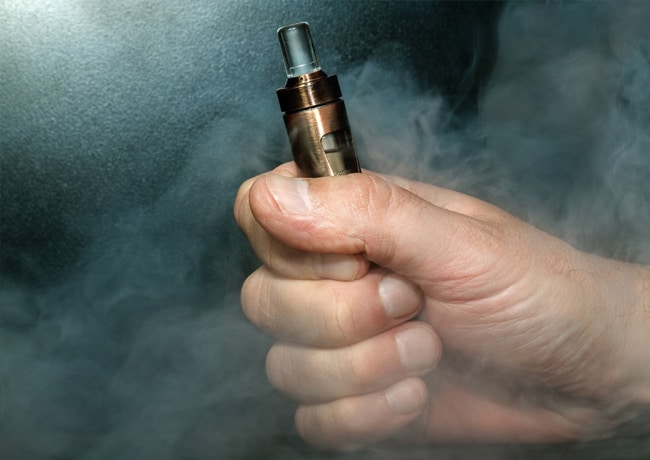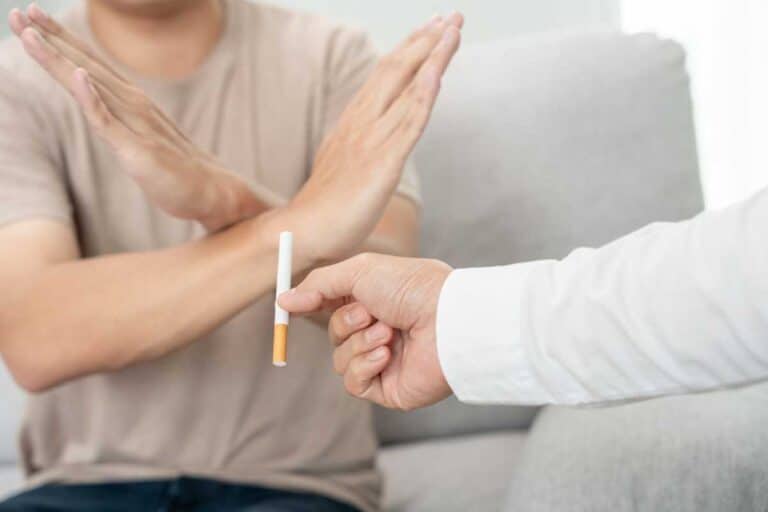Cigarette and Breastfeeding: Can You Smoke While Breastfeeding Your Baby?
Smoking during pregnancy poses a significant risk to the health of both the baby and the mother. This is why many pregnant women or those wishing to have a child decide to quit smoking. But what about after giving birth? Often, the temptation to relapse into smoking is strong after the baby is born. However, smoking during breastfeeding is not without consequences! In this article, Reset Laser explains the impact of smoking during the breastfeeding period and how to avoid the risks.
Why Is Smoking Dangerous During Breastfeeding?
Passive Smoking
Passive smoking occurs when non-smokers, including babies and children, inhale the smoke released by cigarettes smoked by others. Secondhand smoke contains more than 7,000 chemicals, some of which are toxic and carcinogenic. These substances enter the lungs of non-smokers and can cause serious health problems.
When a mother breastfeeds her baby in an environment where she smokes, she exposes him to secondhand smoke. In addition to inhaling this smoke, the baby can also ingest through direct contact the toxic residues deposited on the skin and clothing of his smoking mother. This double exposure is obviously dangerous for the baby’s health.
Transfer of Toxic Substances in Breast Milk
Nicotine, a particularly addictive substance present in cigarettes, along with other toxic components, passes directly into breast milk. Thus, when the mother breastfeeds after smoking, her baby ingests a dose of nicotine and harmful products with the breast milk. The concentration varies depending on the number of cigarettes consumed by the mother. Again, this ingestion is particularly harmful to the infant.

What Are the Risks of Tobacco During Breastfeeding?
Baby’s Health Problems
Smoking while breastfeeding first has consequences on the child’s health. The ingestion of nicotine and other products has direct effects on the baby. It can cause colic, nausea, diarrhea, stomach aches, irritability, and even problems with blood pressure and heart rate.
Passive smoking, on the other hand, often has an even greater impact on health, and it is not always immediate. In addition to immediate discomfort, secondhand smoke can later cause various cardiovascular and respiratory diseases and increases the risk of certain cancers.
Decrease in the Quantity and Quality of Breast Milk
Smoking mothers produce less breast milk, and of lower quality. Indeed, the nicotine present in tobacco is believed to reduce the secretion of prolactin. This hormone is involved in the production of breast milk. As a result, smoking mothers may suffer from insufficient milk supply. Furthermore, the presence of toxic substances in breast milk alters its quality.
Breastfeeding as a Smoker: Precautions to Take
Can’t quit smoking? You don’t have to stop breastfeeding! On the contrary, it remains beneficial for your child, provided you take certain measures to avoid any risk.
No Tobacco Before Feeding
Plan your cigarette consumption to avoid smoking just before breastfeeding your baby. Indeed, it is in the minutes after smoking that the level of toxic products in the milk is generally highest. It is recommended to wait at least two hours after the last cigarette before breastfeeding to reduce the amount of nicotine transmitted.
Reducing Your Cigarette Consumption
Smoking less is always beneficial, whether for you or your infant. Try to reduce your consumption as much as possible. This way, you limit your baby’s exposure to the harmful substances present in the smoke and partially reduce the nicotine concentration in your breast milk.
Maintaining a Smoke-Free Environment
Beyond transmission through milk, the toxic products in the smoke are also inhaled. To avoid exposing your infant to passive smoking, always smoke outside, away from him. The environment in which he evolves should be healthy and smoke-free.
Changing Clothes and Washing Hands
Before breastfeeding and after your last cigarette, change your clothes and wash your hands. Smoke can leave toxic residues on your clothes and skin. These could be harmful to your baby.

Solutions to Quit Smoking While Breastfeeding
For healthy breastfeeding, the best solution is, of course, to quit smoking cigarettes. To do this, you will need to undertake a smoking cessation. Some methods can help you with this.
Nicotine Substitutes
To quit smoking, you can use nicotine substitutes such as patches, gums, lozenges, or inhalers. These medicinal products provide nicotine in a controlled manner, without the toxic substances present in cigarette smoke. They help to reduce the withdrawal symptoms and cravings for cigarettes to help you quit smoking smoothly. However, we advise you to consult your doctor before using these substitutes during breastfeeding to ensure their safety and proper use.
A Natural Method: The Reset Laser Method
Are you looking for a more natural method? The Reset Laser Method is a non-invasive smoking cessation technique without medication. It involves using a laser to stimulate specific points on the ear. This stimulation allows the physical need to smoke to disappear in a single one-hour session, and this without withdrawal symptoms.
For breastfeeding mothers, this method is particularly interesting because it is natural, requires no nicotine substitutes, and is painless.
Quit Smoking with Reset Laser
Take control of your health and that of your child. Quit smoking now with Reset Laser! Simply make an appointment at one of our anti-smoking centers worldwide. Our practitioners will be happy to assist you in your new smoke-free life!
Why Choose RESET Laser Institute
The best method to quit smoking
Specialist
Our therapists are all addiction experts and specialists in laser auriculotherapy cessation.
Effectiveness
Our success rate after one session is over 86%.
Painless
Non-invasive and painless, our therapy is accessible to everyone.

No Stress
You free yourself from addictions and quit smoking without weight gain, stress, or compensation.
Personalized Support
Since each patient is different, we offer personalized support after the session.
1-Year Guarantee
We guarantee our therapy for 1 year in case of relapse.






